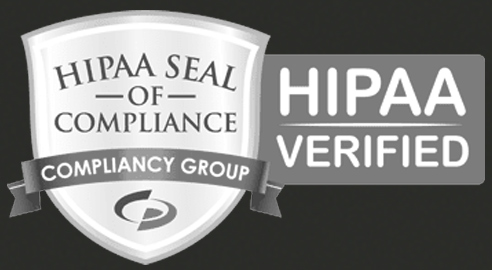How will you respond to the next recession?
The Consumer Confidence Index is falling precipitously and economic experts far and wide predict another recession is imminent. Whatever you do, don’t panic. There are proven strategies to compete during recessions, which I’ll share in my next post.
First, let’s look at the situation, and then you can tell me how you might respond to the recession (If you’re short on time, you can just answer my poll at the end).
We in private healthcare can learn a lot by watching the consumer confidence index. The Index is calculated each month by a household survey of consumers’ opinions on current conditions and future expectations of the economy. Consumer confidence is an economic indicator which measures the degree of optimism that consumers feel about the overall state of the economy and their personal financial situation.
A sudden, precipitous drop in the Consumer Confidence Index signals the beginning of a recession.
The Index has been slowly recovering from the last (Great) Recession of 2007. That is until we got the so-called “Brexit” referendum result for the UK to leave the European Union.
YouGov says: “Last week’s referendum sparked confusion at Westminster and some panic in the money markets. Our latest research with CEBR also shows that it has unnerved consumers too.”
In fact, the YouGov/Cebr Consumer Confidence Index dropped from 111.9 in May to 104.3 on the 23rd of June, 2016.
“Four days of uncertainty have wiped out the gains made over the last three years. The last time consumer confidence was at this level was in May 2013. While it has not yet plumbed the depths of the financial crisis in 2008 when it fell to a score of 67.4, it is only a week after the referendum, and we fully expect it to decline further as the consequences of Brexit kick-in.”
What suffers when consumer confidence is low? Big-ticket, discretionary items – like high investment retail sales, travel, housing sales, and of course, big-ticket private healthcare – like laser eye surgery, plastic surgery, and any other relatively high-priced elective procedure.
I want to show you something I’ve been watching since 2001: how laser eye surgery procedures correlate to the Consumer Confidence Index.
Nervous consumers don’t buy private healthcare
As is glaringly evident from the above chart (from Market Scope, published in Ophthalmology Management), there is an almost exact correlation between the Consumer Confidence Index and the number of laser vision correction procedures performed in the United States.
The chart above correlates laser vision correction sales, but there is no evidence to suggest that other specialities will act differently. In fact, in October of 2008, the New York Times reported that 60% of plastic surgeons performed fewer cosmetic procedures in the first six months of 2008 compared with the same period in 2007. In 2009, that number had climbed to 77%, according to a Merrill Lynch analysis. The industry began to recover in 2012.
What’s also obvious is that Consumer Confidence took a big dip in 2007. What happened? The 2007 Great Recession, of course. The sentiment that that decline reflects is “despair” as the consumer confidence index plummeted from an average around 55 to an average of 40.
Since widespread market deregulation, we’ve become accustomed to boom and bust cycles in the economy. Recessions come, and recessions go. If the “despair” continues, thousands of businesses will fail, and small businesses that focus on big-ticket items will suffer the most.
Failing banks and retail giants grab most of the headlines, but the recession of 2007 claimed more than 170,000 small businesses in the US between 2008 and 2010 (a small business is any business with fewer than 100 employees).
Whatever your political persuasion, it’s clear that the referendum result has lead to uncertainty reflected in the latest Consumer Confidence Index statistics. Whether you believe a recession is imminent, or only more political scaremongering, it pays to be prepared with a strategy.
How will you respond to the next recession?
So now comes the big question that may dictate your future prospects over the next couple of years. Answer the 1 question poll below:
[polldaddy type=”iframe” survey=”9598AE9273F6C839″ height=”auto” domain=”clarity” id=”which-strategy-will-you-employ-during-next-recession-1″]
In my next post, I’ll share these poll results and tell you which mix of responses is likely to be the best and worst approaches to responding to the next recession.
Related Posts
Meet our Co-Founders
We’re passionate about helping leaders of high-quality, growth-minded practice owners double their practice revenue

Rod Solar
Founder & Scalable Business Advisor
For over 20 years, I’ve helped ophthalmology entrepreneurs scale their private practices. I specialise in doubling revenue within three years by offering a proven framework, hands-on experience, and a team of experts who implement what works. We take the guesswork out of growth and scale, so you can focus on delivering exceptional patient care while maximising the value of your business.
LiveseySolar completely transformed the way we were approaching this… We’ve gone from having just the dream of having a practice to having a practice up and running with people making inquiries and booking for procedures… It’s extremely pleasing. We feel lucky we connected with LiveseySolar.
— Dr Matthew Russell, MBChB, FRANZCO, specialist ophthalmic surgeon and founder of VSON and OKKO

Laura Livesey
Founder & CEO
I’m the co-founder & CEO of LiveseySolar. I’ve developed powerful eye surgery marketing systems that increase patient volumes and profits for doctors, clinics, and hospitals, since 1997.
Rod and Laura know as much about marketing surgery to patients as I know about performing it. They are an expert in the field of laser eye surgery marketing. They know this industry inside out. I believe that they could help many companies in a variety of areas including marketing materials, sales training and marketing support for doctors.
— Prof. Dan Reinstein, MD MA FRSC DABO, founder of the London Vision Clinic, UK













